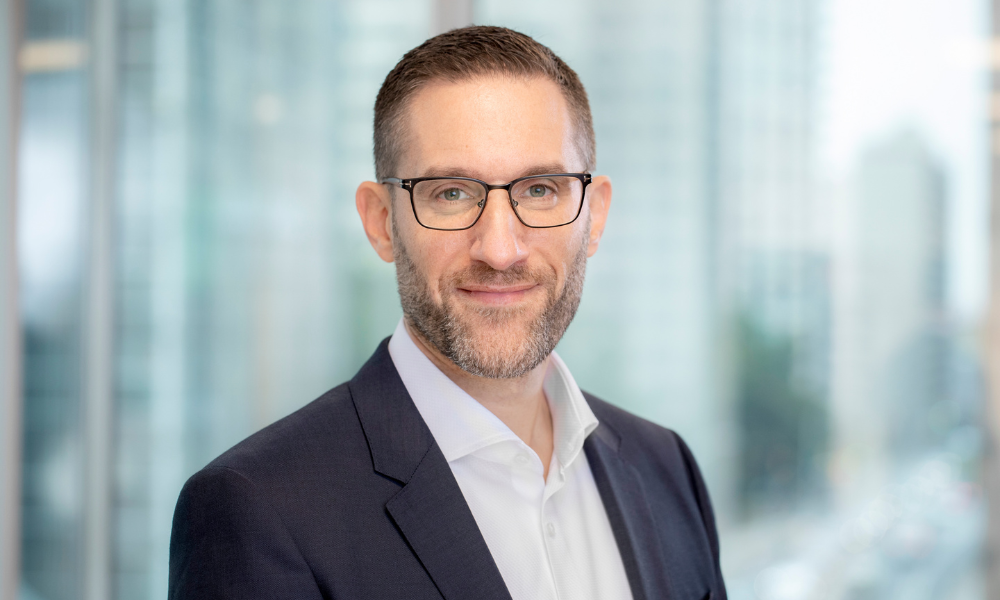
The divide between in-house and external counsel is in the nature of the risks they assess, says vice president and senior managing counsel at credit card company

Marvin Mikhail, vice president and senior managing counsel for Mastercard in Canada, likens his role to that of a sponge.
“Successful in-house lawyers are most valuable when they advise their companies from within, and to do that, they must soak up the business from inside,” he says.
Mikhail adds that the divide between external and in-house counsel lies in the nature of the risks they assess.
“External counsel’s job is to assess legal risk from all its angles, whereas in-house lawyers need to assess and balance a myriad of risks, including geo-political risk, in a world that has become incredibly complex and uncertain.”
Mikhail has approached risk from both points of view.
After obtaining his law degree in French from the University of Montreal in his hometown, he was called to the Quebec bar in July 2007 and was later admitted in Ontario. He started his career by summering and articling at Fasken Martineau Dumoulin LLP’s Montreal office. After meeting his wife, a Toronto resident, Mikhail transferred to the Toronto office, where he worked as a business law associate. He focused on corporate and commercial law and mergers and acquisitions, with what he calls a “sub-focus” on financial institutions from the corporate and regulatory perspectives.
“I loved private practice, but moving in-house had been on my radar for years,” he says. “After my twins were born, things crystallized because I wanted a career with more predictability.”
And has that panned out since he joined Mastercard in 2016 as a director and senior counsel before a promotion to his current role in 2022.
“It has been more predictable – maybe – but the demands are very high and the work very diverse.”
At Mastercard, one of the world’s leading global payment brands that operates in 210 countries, there’s a strong focus on digital commerce, cybersecurity, and digital ID and authentication.
Although Mikhail reports to Nina Mapara, head of legal for Canada, who has general oversight of the team, the work is split up. Mapara takes primary responsibility over regulatory, employment and litigation matters. Mikhail’s responsibilities embrace all things corporate and commercial; marketing, communications, and sponsorships; and commercialization of all new products and services in Canada.
He also assists Mapara on special projects as needed, including significant litigation and regulatory matters.
Overall, the Canadian legal team has six lawyers. In addition to Mapara and Mikhail, there’s a senior counsel in Montreal and three other lawyers in Toronto, one of them is an employment lawyer and two report elsewhere because their responsibilities tend to the global business units.
“There’s also a regulatory compliance analyst in Toronto who’s not a lawyer, and we receive support from global with regard to privacy, intellectual property, and certain product lines,” Mikhail says.
The team is “lean and efficient” because it must be.
“The fact that the industry we operate in moves very rapidly accounts to some degree for the emphasis on efficiency and performance,” Mikhail says.
There’s also the fact that Mastercard is highly acquisitive in a broad range of industries.
“We’re not just a credit card company,” Mikhail says. “We operate in many areas, including cybersecurity and data, and offer many different products and services.”
The pandemic, of course, accelerated the shift from personal to digital in the payments industry.
“Keeping up and ensuring that the e-commerce system was secure was not a small feat and took an incredible investment, including the launch of our Intelligence and Cyber Centre of Excellence in Vancouver in collaboration with the federal government,” Mikhail says.
Indeed, the ecosystem in which Mikhail and his colleagues operate is very complex and engages many players.
“It requires us to stay up to speed in terms of industry trends as well as legal trends,” Mikhail says. “But we also have to deal with issues where the law is behind business developments, which requires a very unique kind of risk analysis as well as comfort in areas that the law has not yet fleshed out.”
Mikhail says that good in-house lawyers must be able to “pause and not get swept into the intensity” that pervades in this hectic environment.
“We help the businesspeople pause and try to give them the right questions to ask so that they’re focused on the risk – so that they can ‘prioritize the important over the urgent,’ as one business author said. Our businesspeople value that role and like it when we challenge them because it helps us to collectively come to the best result.”
From a leadership perspective, Mikhail believes authenticity is the key.
“We have a ‘say what you mean’ approach that our CEO espouses. We call it ‘the MC way.’ Because of the very fast pace, we have to operate in a very nimble and innovative fashion, and we don’t have the luxury of sugar-coating. That means being very direct but respectful so that we, as a team, can get to the end place most efficiently.”
Mikhail’s greatest satisfaction has come from building relationships and credibility that allow the businesspeople to see the value of in-house counsel.
“I take great joy when the businesspeople come to me, not necessarily for my legal skills but because I have a voice, and they want to hear it to help them think strategically. When in-house counsel are doing their job properly, legal services are not a commodity.”